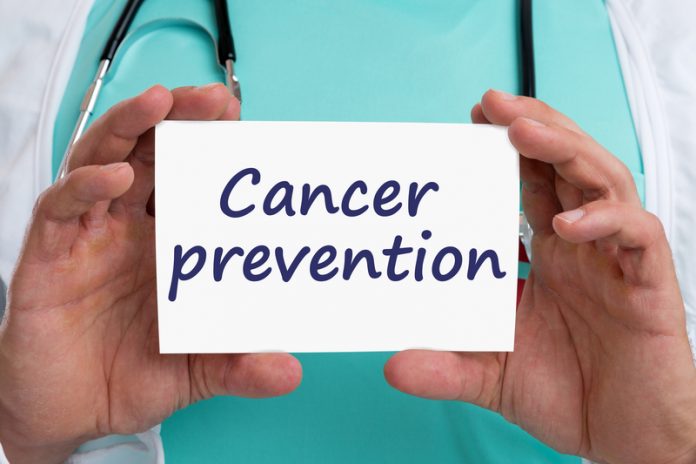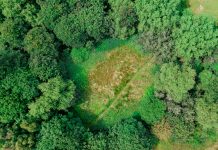World’s second largest inter-governmental body and First Ladies from 16 African Nations deliver Africa cancer awareness event with and agree measures to combat the spread of cancer in Africa
The Organisation of Islamic Cooperation (OIC), the world’s second largest organisation with 57-member states have completed a high-level regional event themed on promoting cancer awareness and advocacy programs in its 27 OIC African Member States.
Hosted by the government of Burkina Faso in the capital city of Ouagadougou on 1-2 August 2018, the event took place under the patronage of the Burkina Faso First Lady H.E. Madam Sika Kabore. It included the participation of the President of Burkina Faso H.E. Marc Roch Kabore,16 First Ladies of African nations, the IAEA Director Shaukat Abdulrazak and UN Population Fund Regional Director, Mabingué Ngom.
First Ladies from Burkina Faso, Benin, Cameroon, Cote D’Ivoire, Gabon, Gambia, the Republic of Guinea, Guinea Bissau, Mali, Mozambique, Niger, Nigeria, Uganda, Senegal, Sierra Leone and Chad participated in the event.
The event included a training workshop facilitated by experts from WHO, the International Atomic Energy Agency, the Islamic Development Bank and SESRIC (Statistical, Economic And Social Research And Training Centre For Islamic Countries) among others, to provide a platform for the exchange of ideas, experiences and best practices in the fight against cancer among OIC African Member States.
The event ended with a Declaration signed by all First Ladies present that included the following recommendations to OIC Member States:
- Invest resources in addressing the risk factors associated with cancer by launching public education campaigns and to engage with representatives of the food industry to ensure compliance with guidelines on healthy diet;
- Integrate cancer prevention into primary healthcare systems of OIC member states
- Encourage the participation of civil society and community in fostering partnerships for dissemination of information about cancer and provision of services for the prevention and control, treatment and care, including palliative care;
- Strengthen implementation of screening programs for women with a focus on breast cancer and cervical cancer – the most frequent and detectable cancers;
- Embrace the Tobacco Free OIC initiative by participating in training and capacity building programs organized by SESRIC to facilitate the development and implementation of sustainable national tobacco control strategies in the OIC Member Countries in line with the guidelines set by WHO Framework Convention on Tobacco Control;
- Develop population-based cancer registry and scale-up national cancer control programs that meet the increasing need for promotion, prevention, early detection, diagnosis, treatment and palliative care to coordinate and optimize resources available to apply evidence-based and high-impact interventions;
- Improve access to appropriate technologies, with support of relevant partners, for the diagnosis and treatment of cancer to promote early diagnosis and treatment;
- For the OIC Secretariat to engage Member States, and collaborate with nongovernmental organizations, private sector entities, philanthropic foundations and academic institutions in order to develop partnerships to scale up cancer prevention and control, and to improve the quality of life of cancer patients, in line with Sustainable Development Goals 3 and 17 as well as OIC 2025: Program of Action.
The event comes on the back of a March 2017 meeting between the OIC General Secretariat in coordination with the Islamic Development Bank Group and the International Atomic Energy Agency in March 2017 to review funding gaps and mobilize resources for the implementation of priority interventions in the National Cancer Control Programs among 18 OIC Member States.
The OIC Secretary General, Dr. Yousef Al-Othaimeen said: “Over the years, the OIC in collaboration with its institutions and international partners have exerted significant efforts to develop necessary policy frameworks to help Member States build national capacities to combat cancer.
“The OIC reiterates its commitment to working with its partners in the WHO, IAEA, Islamic Development Bank and others to carry out programs and activities aimed at helping Member States to combat the disease.”
OIC Assistant Secretary General for Science & Technology Amb. Naeem Khan said: “It is high time we start taking cancer as seriously as other killer diseases like AIDS, Malaria and Tuberculosis.
“Cancer is no longer a disease of rich and old people or, as once deemed, confined to the developed world. The situation is especially critical in Africa where about 80 percent of its 1.2 billion people have no access to radiotherapy and related cancer services at all.
“The burden caused by cancer calls for dedicated resources, beyond that available from national health budgets.”












